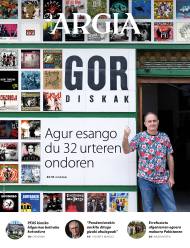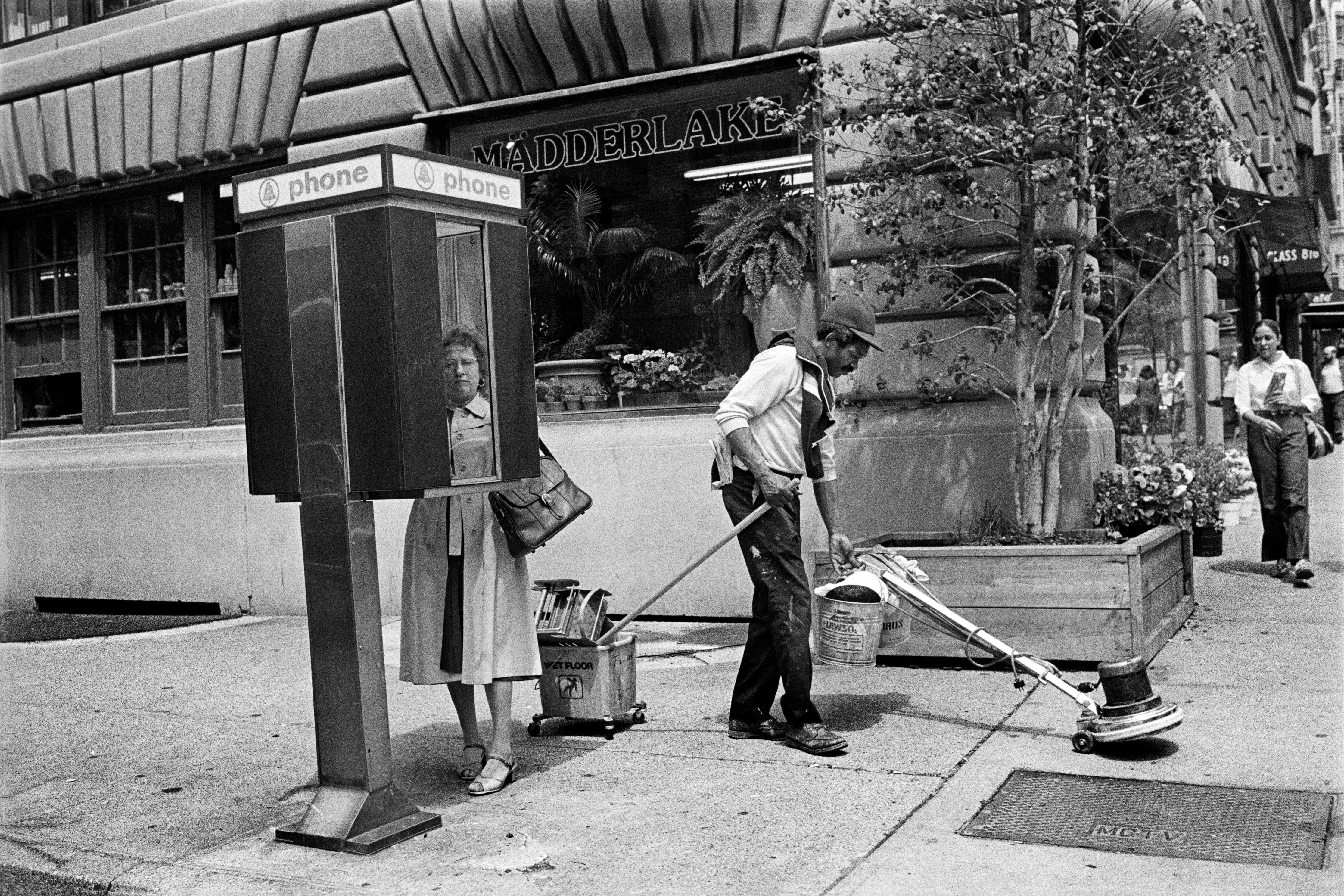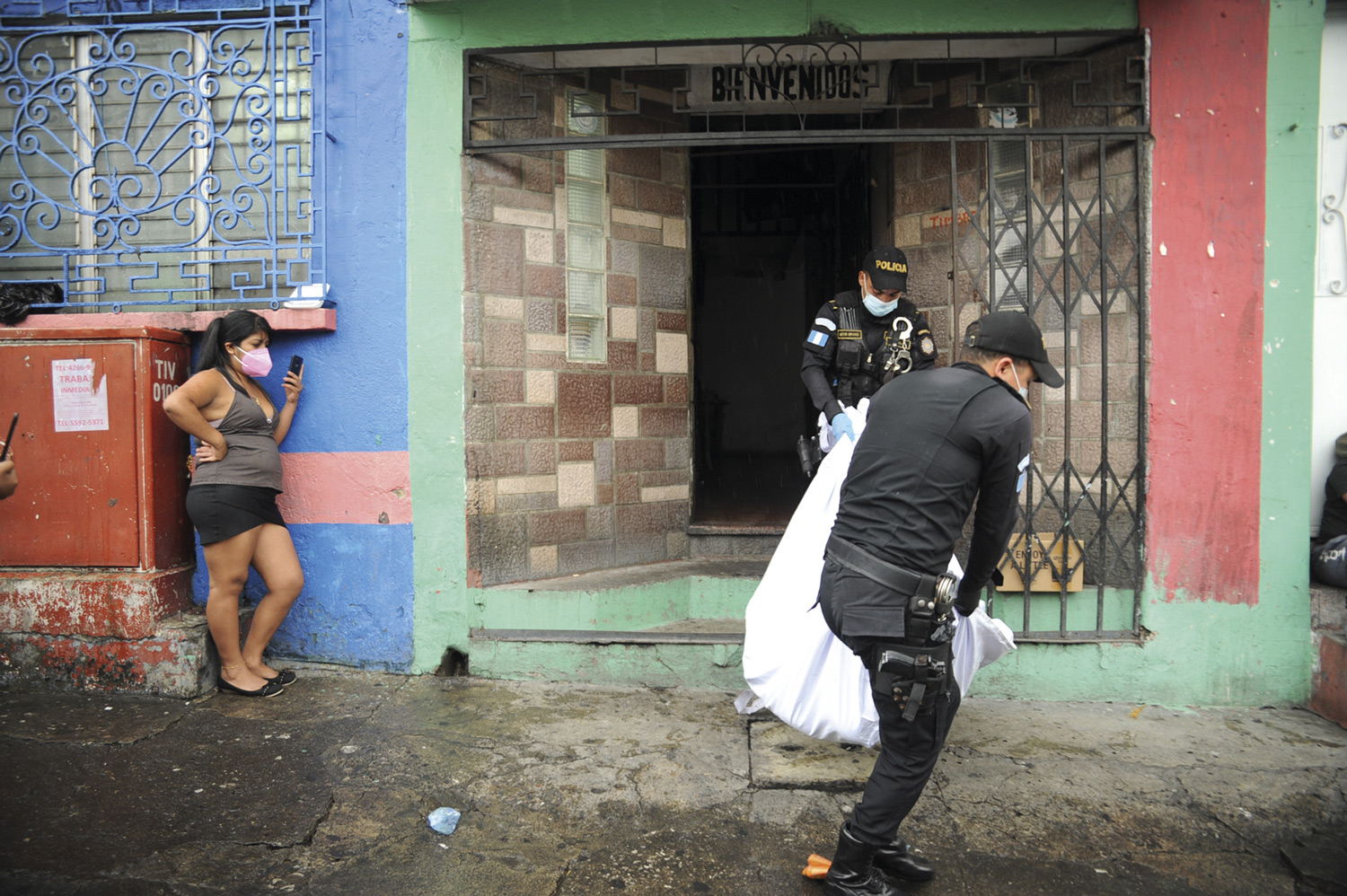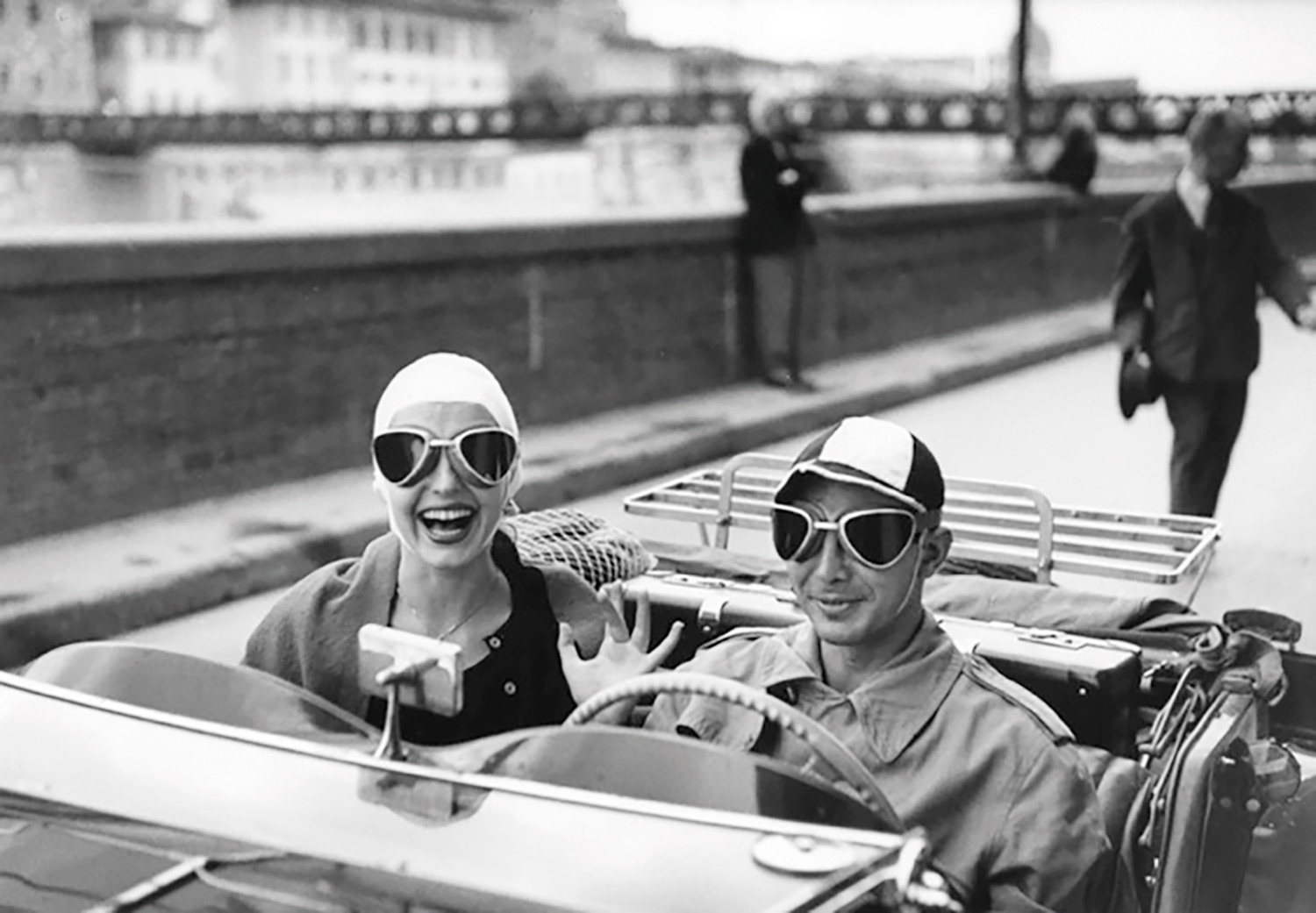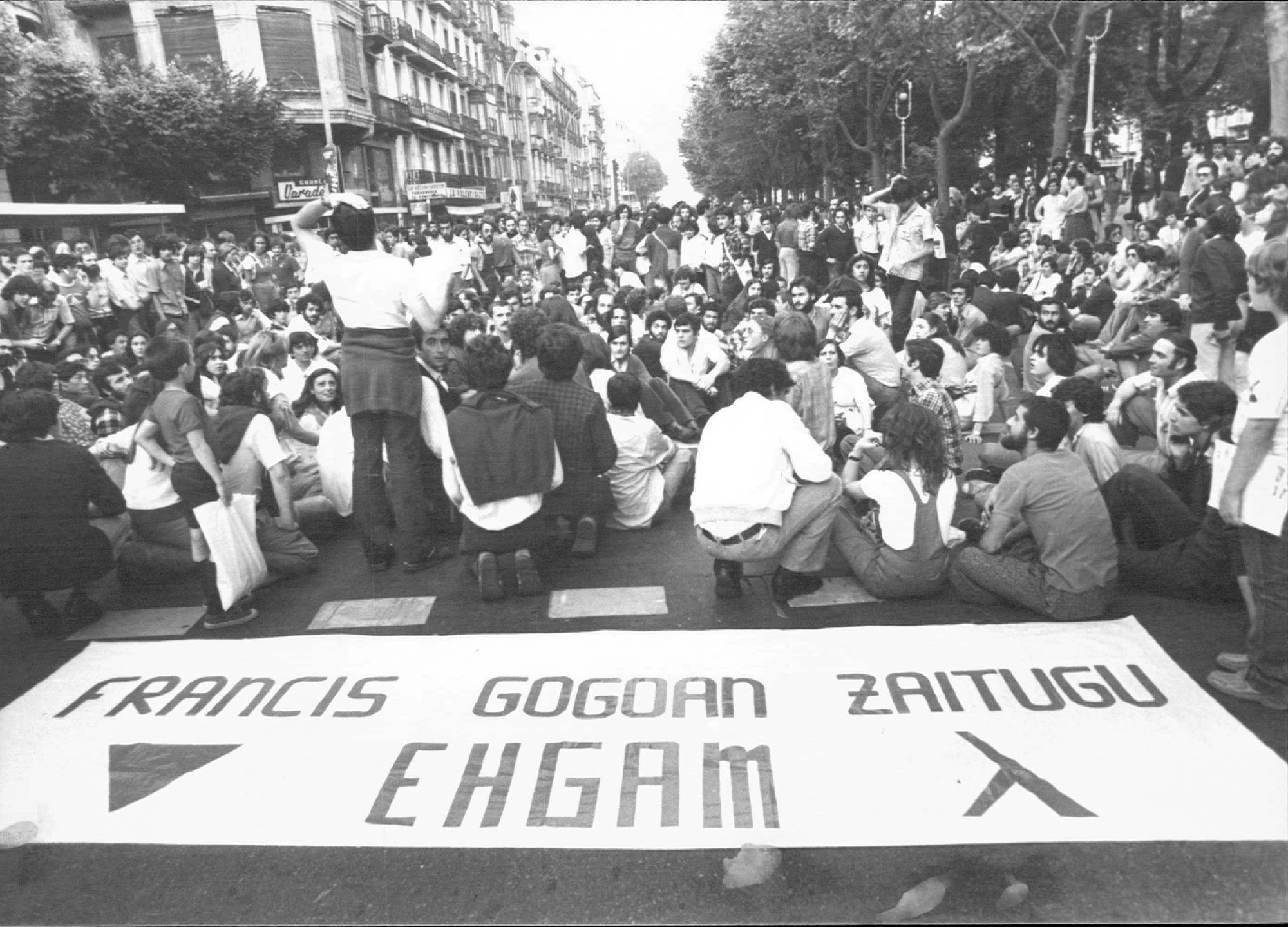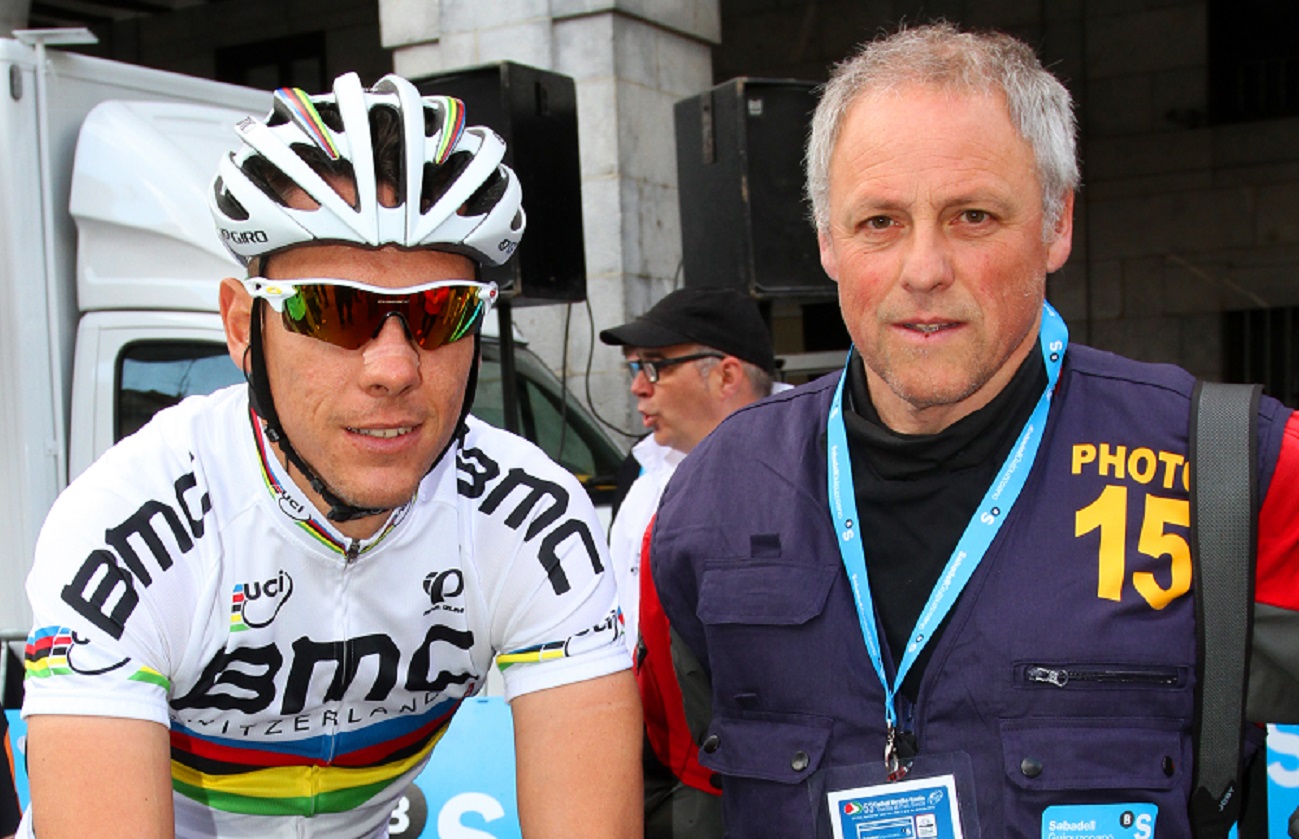"With the photos I'm not in a quest to catch reality"
- We met with photographer Gabrielle Duplantier in Baiona, on a terrace on the banks of the Adour. Without exhibitions or new books, ask the journalist about what the interview is going to be, specifying that it is also in a vital phase in which a small photograph is taken. We have taken advantage of this "empty" space to open the sot and devote a lot of time to its creation. The 45-year-old artist has a long career in photography. And he has managed to occupy a place in that world in the unusual: "I still don't understand how I got here. It all agreed to conclude that I would not succeed." We have talked about the way and life.

How would you describe your photos to an unknown reader?
How I would describe them… Most of them are black and white photographs, I've also worked with color, but I've dedicated myself to black and white, because it filled me with a lot more imagination, and I'm personally very interested. I would say that they have a feminine tone, and one of what we see with our eyes is repelled. I'm not looking for reality, I'm more trying to capture sensations and imagination. My photos are more related to imagination, sleep, ghost.
And your gaze? What makes it take the photo machine or press the trigger?
It's changing, there's no law. The relationship with photography has changed over time. I like to talk about principle, because being purer is more interesting. I say it was a necessity: the faces aroused me a great curiosity; the visas, the looks, the emotions, the things that happen in unseen faces ... Nature has always inspired me much more than the city. And the light itself that accompanies nature back and forth. At first I was attracted to the charged skies, the dark ones, the rainy ones, now I love the beautiful weather conditions, the shadows derived from the sun… In the background and to answer the question, when a flash appears: suddenly we have a connection between the look, the brain and the heart, and photography is a compliment.
"Suddenly we have a connection between the eye, the brain and the heart and photography is a compliment of that glitter."
Has your eyes changed because you have changed?
Of course. We change, we change the relationship with life, we change the relationship between space and body, and how not, it also changes our relationship with photography. It is interesting to expand the view and explore other edges in photography. I have to open new doors. I say that, and I have a representation of what I repeat the discharge. There are also the pictures we have seen, which have moved us: the influences. I've never looked at each other's photos too much at will. But I know that it has been some who have given me a real boost at first, that I have been wanting to be there where I did not think.
Not too many influences to cause you and yours. He also rejected the school of photography.
He wanted me to pay for a photo school, because it was always a photo machine in my hands, there was no one in my head. I didn't accept it because I was very afraid that I would take away the pure joy and freedom of photography. When I was in art school, I loved painting, but why that and why that, I was always disgusted by the power to give explanations or listen.
Are you a multi-photo photographer?
Dependencies, but I can do them enormously. However, I could say that I make them less than before, which I understand more exactly, because I'm in analogue and every time I squeeze the trigger comes out at 50 cents or they're [laughter]. This economic reason is also there, but I recognise that I forget it if the cause occurs in parallel with something that conveys to me.
Transcendence.
I don’t know if it’s a correct word…
Do we keep it?
We keep it.
What fascinates you visually or emotionally? Does this fascinating often cause?
That is not enough! [Laughter]. Essentially, I'm not doing a lot of photos, because I have a hard time capturing just the fascinating one. So when I leave, far away, trying to surprise this fascinating unknown place. However, I can still detect things so typical that I'm fascinated in my day to day. I mostly fall into people, or into light. Children also fascinate me with their freedom, their indifference, the lack of awareness of what they bring. I'm excited about her vitality. These are typical creatures that often run into the eyes of others, who are closely linked to life and have been inspected.
The environment of loneliness is also felt in your photos, the forgiving part of loneliness.
It's possible. It is not conscious or wanted, but it is true that I feel the need to isolate my subjects. I like to focus on one entity, I understand myself by avoiding multiplication of energies. So my pictures echo the loneliness. Anyway, I'm also very lonely, and I think it expresses something.
Do you like lab work?
I love it. Over time it has also changed. At first I did everything in the lab, now I numbered the negatives and I'm in the lab, but in a more banal way. For economic and material reasons, even for the parameter of time. But yes, the time of the lab is very fast: I put music in full volume and I fall into a space of time that's mine, I'm in fusion with the photo, concentrated, trying to capture something very special. It's very fast.
Potrets are your multiple photos. Do you follow these people in time?
Yes. It's actually not a project or something that's been prepared before, but yes, I take pictures of some people long ago. It also sounds pretty magical to me.

Childhood influences who we are. You have gone through a rural jungle, surrounded by artist parents, along with two brothers.
Now I'm lying in my childhood home. I try to look from the perspective of today those spaces that have always been occupied, as if today were valid, and not those of yesterday. There I don't answer the question, I'm talking about the place. What do I remember? Free parents, far removed from the nature of others. My father was a cartoonist, a passionate worker, with a fantasy and rich world, but he didn't talk about what he was. My mother always talked, she was very spiritual. They were exceptional and educated us very freely. That doesn't mean we were invested in artists. My father said, “Don’t do it!” when we saw that all three of us joined the art road. As a cartoonist, he took his family in ancient times and knew what he was talking about. We weren't rich in money, but there were so many riches in that family. However, he didn't cut us off, but they made it clear that it would be complicated, that it was a lot of work. It is true, years have passed, it has not been easy, it has been exhausting, but in the end it has been worth it.
Today, Gabrielle Duplantier’s name is known in photography.
Yes, and I still have difficulty believing! In photography, I've become someone without such ambition. I've taken pictures because I had that need. I have never stopped doing it, and discharge was not a benefit, because I was taken away more than once. It all agreed to conclude that it would not succeed. I had no strategy, I went ahead blind, I got hooked on extended hands, I took the paths that opened me, it has been done slowly so far. I haven't been opportunistic and I don't get the right word, but that, I'm shy. Today, it's still not easy for me. Soon I will have to offer a workshop in Italy and I dedicate myself to conveying my thought. I still do not understand how I got here. But I'm very happy. And proud.
How do you have the files of all these years?
Not everything is interesting, three-quarters are nothing interesting. I don't know why I made some pictures. In the end they serve me to clarify what does not serve me. Now I have some intuitions because of those failed photos. But I still stumble, the picture I didn't think I would take might be good. I'm still surprised by photography and thank you.
How have you classified them?
Chronologically, and some by subject, let's say special trips. But I take care of them badly, I have them on a shelf, I don’t have them protected… They should normally be in a safe to protect me from fire.
That's what I thought.
I remember that too. But what do I have to do? [laughter] If there's a fire -- goodbye Ben Hur.
Do you ever look?
Sometimes I go into a new scan to see if I haven't gone ahead of something. Sometimes it's productive, sometimes it's not. A photograph may occur with something modified. It is tremendous when it happens, so it serves. As the gaze changes, we must look behind the images to look with that new look. It's inexhaustible. Almost unbearable [laughter].
His latest book was published in 2018 under the name of Terres Basses.
After Volta we published Terres Basses four years. With the editor, we're working on another one by 2024. He wanted two years ago, but I needed more time. Now I am ready, I can propose something. But I have a lot of images, I'm not clear yet.
How do you bring the process of creating the book?
I have pictures at the base. I take them out on a daily basis, without any foresight. Then everyone comes together and something emerges: a story. I collaborate with the editor, let him explain what he sees. With Volta no, but with Terres Basses himself he caused what the images counted. Since 2018, I've been accumulating photos. Although they are the same subjects, the editor says there is something new: a new light, a tranquility that did not exist in the past... I try to locate the owner. I have proposed several to the editor but I have rejected them. I think I have a new proposal, but I am not entirely sure. It is a question of whether or not to establish a text. He wants, I don't like the exercise, but I will rape myself anyway and I will. It shall be recorded.
Do you see the change you see?
I hadn't seen it, but I said it and I think. We know each other personally, we follow our lives and you see that life has calmed me down. And it's true: it appears in the pictures.
"I didn't agree to do the photo school because I was very afraid that I would take away the pure joy and freedom that photography gave me."
Your mother died. Terres Basses is a book brought to light when they mourned.
Yes. He suffered a violent death, went through hell nolazpait. I was very close to my mother. It was my spiritual guide, my friend, my mother, my binomial, my sister. All at once. He had a great ability to guide people, understood the doubts, questions and sufferings of individuals. Talk to my mother and on a strong and irascible side. After his death, I looked at my existence, and it was a disaster: I left my partner, I got angry with two close friends, I got into another guy who betrayed me, supposedly sent by the sky...! Imagine, that traitor is also in my book! [laughter] I mean, in a deep whirlpool nintzen.Terres Basses helped me get back. The relationship with the editor David [Fourré], the reconnection to life, to others and happiness through the photographs taken. Apparently, the photos showed me that I always lived, that desire didn't disappear. The fact that the editor has seen the flesh to publish a book gave me confidence and joy. Seeing that my photos are related to my life, the photos of that time are linked to that fact and to the derived new life.
Did the disease lead her mother?
Yes, a terrible disease.
Did you take pictures of that body that was disappearing?
No. No, I can't. As for photography, I have many limitations. I don't want to (...)
...
No. My photos are reminders, they're not testimonials.
You Terres Basses, the Low Lands brothers. It all comes from the march of the madre.Hemos created the
clip of the song Low Lands next to the kusi of my very close father, Alain Duplantier. It is a tribute dedicated to the mother. I returned the title of the song to French and put it in the book, because it gave me the right formula. Terres Basses [lowlands]. The book contains some images taken during the recording of the clip. The two creations go hand in hand.
We ended up mentioning Gojira [the musical group of his two brothers, world-renowned]. In interviews you often start talking about yourself and end up talking about creating siblings or parents. Do you weigh?
How is it going to weigh me? I am very close to my brothers, very proud of them. I followed the beginning of Gojira, I participated in the clips, I photographed them, that story is a little bit my adventure. At the same time, it is true that while we are united, we each have our way, our identity, our creation and our differentiation is important.
In Eider Rodriguez’s Too Big Heart we can explain the stories of your photos on the covers of some books. Do you like this meeting?
Yes! They're not collaborations, but it's true that I'm excited many times. I love that use of my photos. I've long been lucky enough to be on the skin of books and all the time it's a pride. I like to think that my photos may be able to synthesize someone's imagination.
What can we wish him besides the book?
Stop building my house? It's not possible. I don't know. What do you want me? Being ready, finding some joy every day and not losing sight of desire.










